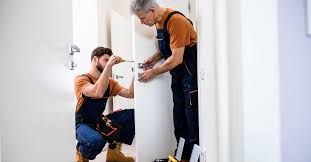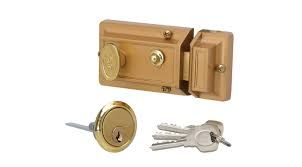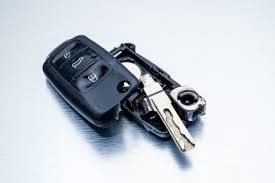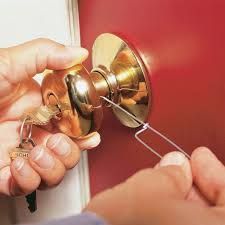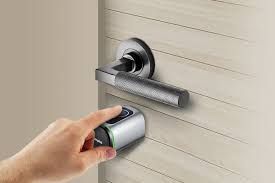Frequently Asked Questions About Locksmith Services
Curious about locksmith services? You're not alone. Here at Brother Locksmith, we understand the importance of security and convenience. Let's dive into some common questions to help you better understand what we do and how we can assist you:
What is the most common locksmith task?
The most common task for locksmiths is helping people regain access to their homes, cars, or businesses when keys are lost, stolen, or misplaced. This often involves lockouts where a locksmith uses specialized tools to open doors without causing damage.
What are three responsible practices that locksmiths should always follow?
Responsible locksmiths prioritize customer security and satisfaction by:
- Verifying the customer's identity and ownership of the property before performing any work.
- Using legal and ethical methods to gain entry or change locks, respecting privacy and property rights.
- Providing transparent pricing and explaining all charges upfront to avoid surprises.
How do I choose a good locksmith?
When selecting a locksmith, look for credentials such as licenses and certifications, which ensure their expertise and adherence to industry standards. Read customer reviews and testimonials to gauge their reputation and reliability. A good locksmith should also offer 24/7 emergency services and prompt responses to inquiries.
What to expect when you call a locksmith?
When you contact a locksmith, expect professional assistance tailored to your needs. They will ask about your location, the type of lock or service required, and any specific circumstances like emergencies or scheduled appointments. A reputable locksmith will arrive promptly, equipped with the necessary tools to resolve your issue efficiently.
Why should I hire a professional locksmith company when I can probably figure out how to fix the issue on my own?
Professional locksmiths bring expertise, specialized tools, and experience to ensure that your locks are handled properly without causing damage. Attempting DIY fixes can often lead to further complications or damage, potentially costing more in the long run. Hiring a professional locksmith guarantees reliable service and peace of mind.
I accidentally locked my keys in my car, what can I do to get back in?
If you've locked your keys inside your car, the best course of action is to call a professional locksmith. They have tools and techniques to safely unlock car doors without causing damage to your vehicle. Avoid using improvised tools or methods, as these can damage your car's locking mechanism or door frame.
Whenever I insert my key into the lock, it gets stuck and won’t turn well. Should I be calling a professional?
Yes, if your key consistently gets stuck or turns poorly in the lock, it's advisable to consult a professional locksmith. This could indicate issues with the lock mechanism itself, which a locksmith can diagnose and repair or replace as needed.
Are your locksmith technicians licensed and insured to fix my lock?
Absolutely. Our locksmith technicians at Brother Locksmith are fully licensed and insured. This ensures that they meet industry standards for competency and professionalism while providing you with peace of mind regarding liability and quality of service.
How can I find the best locksmith near me to care for my locksmith needs?
To find the best locksmith near you, start by researching local companies online. Check their credentials, such as licenses and customer reviews. Ask for recommendations from friends, family, or neighbors who have used locksmith services. Choose a locksmith with a solid reputation for reliability, transparency, and customer satisfaction.
What happens if the lock that you install on my door stops working? Is your work guaranteed?
At Brother Locksmith, we stand behind our workmanship. Our installations come with a guarantee to ensure that your new lock functions properly. If you experience any issues with the lock we've installed, simply contact us, and we'll promptly address and resolve the issue to your satisfaction.
What happens if I call and then cancel the callout?
We understand that circumstances can change. If you need to cancel a locksmith callout, please notify us as soon as possible. We strive to be flexible and accommodating with scheduling changes while respecting our technicians' time and commitment to other customers.
By addressing these frequently asked questions, we hope to provide clarity and confidence in our locksmith services at Brother Locksmith. Whether you're facing an emergency lockout or looking to enhance your security, trust our team to deliver reliable solutions with a commitment to professionalism and customer care.
Conclusion
At Brother Locksmith, we are dedicated to providing top-notch locksmith services that ensure your security and peace of mind. Whether you're dealing with a lockout, need to upgrade your locks, or have any other security concerns, our team of licensed and insured professionals is here to help.
By understanding common locksmith tasks, responsible practices, and what to expect when you call us, you can make informed decisions about your security needs. Remember, attempting DIY fixes can lead to further issues, so trust the experts to handle your locksmith challenges efficiently and effectively. If you have any more questions or need assistance, don't hesitate to reach out to us at Brother Locksmith. Your security is our priority, and we're here to ensure you feel safe and secure in your home, car, or business.
Call Us Any Time!
